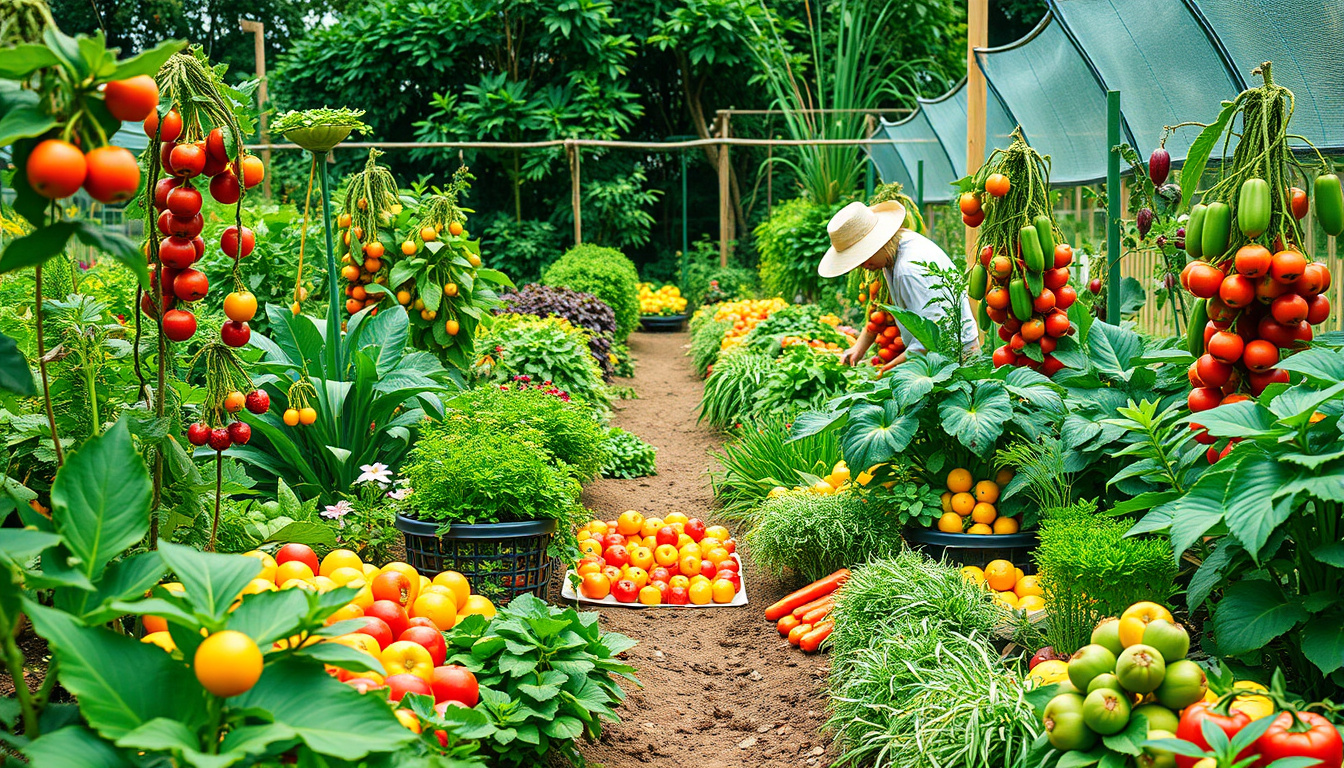The Ultimate Guide to Starting Your Own Organic Garden: Tips, Tricks, and Essential Steps for Beginners

Are you ready to dive into the rewarding world of organic gardening? Growing your own organic garden not only provides you with fresh, healthy produce, but it also promotes environmental sustainability and biodiversity. If you're a beginner looking to develop this fulfilling hobby, this guide will walk you through the essential steps and tips to get started on the right foot.

1. Understand Organic Gardening
Organic gardening is rooted in the principles of sustainability and environmental health. It involves growing plants without the use of synthetic fertilizers, pesticides, or genetically modified organisms. The key focus is on building a thriving ecosystem in your garden where nutrients are naturally replenished and plant health is supported without harsh chemicals.
2. Choose the Right Location
Selecting an appropriate location for your garden is crucial. Look for an area that receives at least 6 to 8 hours of direct sunlight each day, has good drainage, and is easily accessible for maintenance. Having a nearby water source will also help in keeping your garden hydrated without hassle.
3. Test Your Soil
Before planting, it's essential to understand the health of your soil. Conduct a soil test to determine its pH level, nutrient content, and overall structure. Many local extension offices and garden centers offer soil testing services. The results will guide you in amending your soil to ensure optimal growing conditions.
How to Improve Your Soil
- Add Organic Matter: Incorporate compost, well-rotted manure, or other organic materials into your soil to enhance fertility and improve overall structure.
- Use Mulch: Applying an organic mulch layer will help retain moisture, suppress weeds, and gradually enrich the soil as it breaks down.
4. Start With Seeds or Plants
When beginning your organic garden, opt for organic seeds or plants. These are grown without chemical treatments and are better suited for an organic garden’s health. Look for local nurseries or seed suppliers that specialize in organic products. If you desire quick satisfaction, consider starting with transplants from an organic nursery.
5. Plan Your Garden Layout
A well-planned garden layout increases efficiency and productivity. Consider using raised beds, which can improve soil quality and drainage. Also, think about companion planting, where certain plants benefit each other when grown close together. For instance, planting tomatoes alongside basil can enhance growth and flavor.
6. Water Wisely
Water management is crucial for organic gardens. Deep watering encourages strong root systems, while regular but moderate watering is best to keep plants healthy. Consider installing a drip irrigation system that delivers water directly to the base of plants, reducing waste and fungal diseases associated with wet foliage.
7. Practice Pest Management
Organic gardening embraces natural pest management strategies. Here are a few effective methods:
- Encourage Beneficial Insects: Introduce ladybugs and lacewings, which prey on harmful pests.
- Use Barriers: Protect your plants with row covers or nets to deter pests.
- Handpick Pests: Regularly inspect your plants and remove pests by hand.
8. Rotate Crops Annually
Crop rotation is essential in preventing soil depletion and reducing pest and disease buildup. Each growing season, move your crops to a different location. This helps maintain soil balance and promotes diversity in your garden.
9. Keep Records & Learn
Keep a gardening journal to track your planting dates, successes, and challenges. Learning from experience will enhance your skills and support better yields in the future. Resources like gardening books, online forums, and local gardening clubs can provide further knowledge and support.
10. Enjoy the Harvest!
Once your plants start producing, it's time for the best part: the harvest! Freshly-picked organic fruits and vegetables are always a delight. Engaging in recipes that showcase your bounty can be a great way to enjoy the fruits of your labor — and share with friends and family.
Conclusion
Starting your own organic garden is a fulfilling venture filled with learning opportunities and benefits for your health and the environment. By following these essential steps and nurturing your plants with love and care, you'll not only cultivate a garden but also a sustainable lifestyle. So, grab your gardening gear, get your hands dirty, and enjoy the beauty of growing organically!
We publish a quarterly magazine available in IOS, Android and Web reader. Stories and articles curated from amazing people all around the world.






